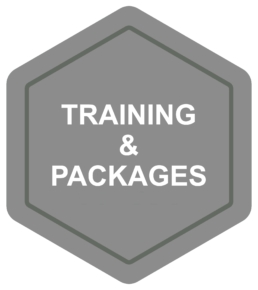What is Freediving? From the Perspective of a Freediver
Every freedive actually begins at the surface of the water, where I am looking for a state of concentrated relaxation. Through breathing and effortless floating, I am able to calm my mind-body complex in preparation for my dive. After taking a full final breath of fresh air, I initiate my descent through a duck dive. While I dive down I equalize the pressure in my ears frequently, as the increase in water pressure compresses the airspaces in my body. My mental and physical relaxation along with a streamlined body position are the key to succeed in moving effortlessly underwater. Whether I dive to see marine life, take pictures, feel weightless, or break records and compete, it is always interesting to observe my mind and body’s reaction to the unusual environment that I find myself in, while freediving.
But how do I know when to return to the surface?
Fortunately, our body is intelligent in many ways and tells us through movements in our diaphragm that it is time to get back up for a full breath of oxygen-rich, fresh air. As I head up on the last meters to the surface the water gets brighter and I can see my buddy, my safety, who is watching me to ensure my safe arrival back on the surface.
I fell in love with freediving at the first breath-hold. As I advanced into deeper depths and progressed as an athlete, I transformed as a person as well. I realized my full capability, became fascinated and focused. I found my direction in life while enjoying life as it unfolds.
Freediving has many facets, and each person will find a different reason to do it, but in the end it all comes down to being underwater on a single breath of air. Discover how freediving can fascinate and transform you too.
– Thibault Guignés

An Introduction to FreedivingWhy Everyone can Learn to Freedive
It is completely normal to hesitate before signing up for your first freedive experience. You are about to enter a new world, a new environment that may seem very strange at the beginning. Maybe you are a smoker, maybe you are afraid of the ocean and what lives in it, maybe you are just unsure whether your body is fit for such a sport or maybe you are afraid of failing and not living up to yours and everybody’s expectations.
All these answers you will never get unless you try. It’s the one thing that you will have to do. If you don’t, you will never know. But in order to reassure you to take this step and that indeed everybody can learn to freedive let me tell you about what we call the ‘Dive Reflex’.
All mammals and certain other species (yes that includes you) that inhabit our blue planet, whether they live in the ocean or on land, share a physiological phenomenon, which we call the ‘Dive Reflex’. The Dive Reflex is what makes all of us suitable for the amazing sport which is freediving. As we come in contact with water and hold our breath certain mechanisms in our body kick in that allow us to dive deeper, longer and safer. In other words, the dive reflex, is the adaption of any living physical body to the aquatic environment. Underwater we naturally can not breathe. You know that and your body knows it, too. So what your body does in order to adapt in the most efficient way to being underwater is that it tries to minimize your oxygen usage. This can be achieved in numerous ways. First and foremost, your heart rate slows down almost immediately if you immerse your face in preferably cold water. Try it right now with a bucket if you don’t believe me. Or did no one ever tell you to splash cold water in your face to calm your nerves?
Once inhaled, oxygen travels to the lungs where it enters our blood stream. Now that we are freediving our body understands how precious oxygen is. The body also understands that it is crucial to prioritize oxygen supply to those organs that are most vital for our well-being. Therefore it simply constricts the blood vessels in your extremities in order to increase the blood flow, and through that the oxygen supply in your organs with the focus being on the heart, brain and lungs.
All in all, if you combine the natural intelligence of your body, with the highest quality of education along with a bit of courage and trust in yourself and you will be freediving with us in no time.
Still having doubts?! Contact us now for more reassurance.
Competitive Freediving Disciplines
CWT/CWTb
The freediver descends and ascends with the same weighting using a monofin or bi-fins without pulling on the rope
FIM
The freediver descends and ascends with the same weighting without fins by pulling on the dive rope
CNF
The freediver descends and ascends with the same weighting without fins using breaststroke technique
DYN/DYNb
The freediver attempts to cover the greatest horizontal distance using a monofin or bi-fins
DNF
The freediver attempts to cover the greatest horizontal distance without fins using breaststroke technique
STA
The freediver holds his/her breath on the water surface with the face submerged
Our Freediving Centre
Welcome to Camotes Freediving
Welcome to Camotes Freediving, your one and only center for World Class Freediving Education Training on the Camotes Islands! Learn more about us.
Learn Freediving
Interested? Come and join us at Camotes Freediving. We ensure you an enjoyable and safe start of your freediving journey!
Coaching & Practice
Already certified? Check out our offers and packages for certified divers.











